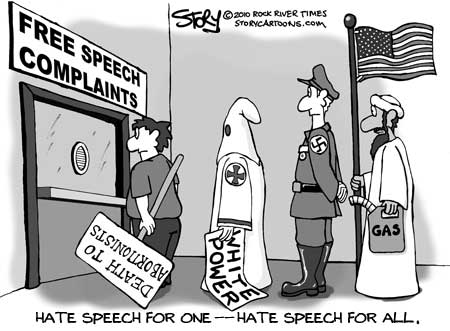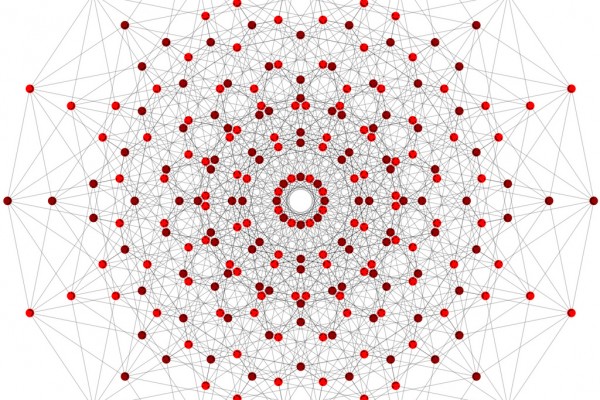Back in the early days of the Internet – and coincidentally of my life – our parents would advise my peers and I against giving out our names online. Something as innocuous as signing up for MSN was fraught with warnings of cyber-boogeymen, perverts and thieves, who would beguile us through instant-message and bring about our ruin.
In just a decade the Internet has gone from criminal den to something of an ersatz religion, invisible and untouchable but seeing all and touching all. We wake in the morning and peer into the windows on our screens before we peer out of the windows of our bedrooms. Leaving the house without a phone feels like leaving without a limb. With oft-quoted statistics indicating that the average person spends multiple hours per day online, it’s beyond argument that we’re living in a highly digitized world, with a significant amount of our identities, our very selves, tied up in bits as well as cells.
To some, this is Good News. We have prophets donned in black turtlenecks (or graphic tees with practical sneakers) heralding the coming of the techno-Utopia: the coming age of interconnectedness, where any and all can come together to form communities of togetherness, where the mundane is automated away leaving us to indulge our every whim, where every voice is allowed an opportunity to speak — the promise of the universal collective, the universal pleasure cruise, the universal soapbox. Truly, these fresh (and pale) faced mystics would have us believe we are on the cusp of realizing our wildest dreams of liberalism through the almighty power that is the Internet.
We are all familiar with many aphorisms on the nature of power: that “absolute power corrupts absolutely,” that “with great power comes great responsibility.” But I think we have lost the meaning of these phrases and those like it, because pithy sentiments tend toward ambiguity. Whom does power corrupt? And who is responsible for the use of power?
The past few years have presented a sobering look into the darker side of the Internet. Snowden the NSA whistleblower is the most significant example, shedding light on the American surveillance program which spies on friend and foe alike, with backdoors into the largest technology companies. While this incident is stamped on the collective consciousness, the breakneck pace of our virtual lives has rendered the PRISM program old news, something that now concerns mostly alarmists and security geeks.
Less publicized were other breaches in user security and public trust, such as the revelation that every iPhone has a backdoor where Apple can take any information it wants, all without the user’s knowledge. This problem has been somewhat mitigated in iOS 8, but authorities are still able to obtain information stored in the company’s cloud storage service.
Equally disturbing is the trend in Big Data where something as innocent as Facebook likes can be used to create consumer profiles, far more accurate than the model of marketing demographics which they displaced. The wet dream of every corporation, computer scientists can analyse aggregates of Facebook likes to determine everything from one’s age and gender to their political views. This has progressed to the point where, after analyzing a young woman’s spending habits, Target sent advertisements for diapers and other infant care items in the mail before the girl’s father even knew she was pregnant. Big Data has allowed corporations to deliver precise, opportunistic advertisements in an ongoing project to turn us into lifelong consumers — even before we are born.
Most unsettling of all is perhaps Facebook’s experiment in thought-control: in conjunction with researchers from Cornell and the University of California, Facebook prevented a group of users from seeing certain emotionally charged words in order to observe the impact on user’s posts and status updates. The study confirms that emotional states can be transferred to others – without direction interaction – on a “massive scale”.
Though Facebook denies military funding for this experiment (Cornell works with the Minerva Initiative), the American government has recently taken an interest in university research, especially sociology (among other topics of strategic importance, such as on Islam, China, and ‘terrorism’) so as to gain information that can be useful for the military in the long-term. Given also that the Pentagon is preparing for mass civil breakdown, the links between our daily Internet usage (including and especially social media), the parasitic nature of megacorporations and the shady interests of major governments become frighteningly clear.
In contrast to the phrases quoted earlier, I prefer Nietzche’s thoughts on power. In Thus Spoke Zarathustra, the eponymous protagonist says:
‘If I wanted to shake this tree with my hands, I should be unable to do it. But the wind, which we cannot see, torments it and bends it where it wishes. It is invisible hands that torment and bend us the worst.’
In the same spirit, we all have an obligation to ourselves to watch the invisible hands which guide our lives. It is coming time to recognize the degree to which we are complicit in our own subordination qua commodities, lab rats and peons. We deserve a world in which the word ‘freedom’ is not followed by an asterisk and a terms of agreement. Like Faust, we are faced with a bargain between great knowledge and power for the price of losing control of our souls and our selves. It is coming time to ask ourselves whether the costs of this deal are too high — or to change the nature of the bargain.
By John Saigle








